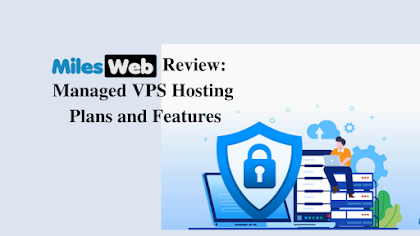Consider what it was like when you initially launched your company’s website. Most likely, you were getting your foot in the door of the corporate world, with little or no idea what lay ahead.
Like anything else, a business starts small and develops over time with the appropriate marketing and care. Not only does your company’s clientele and revenue increase, but so does the amount of traffic it receives. And a slower website speed is directly related to increasing traffic. But there’s a catch: the first assertion is only true if your company has exceeded its hosting subscription.
Your company is expanding! This is a clear indication of a well-done work. Your perseverance and hard effort are bearing fruit! However, you must now upgrade. You’ve been weighing the pros and cons of shared vs. VPS hosting and aren’t sure which server you require.
Your existing shared plan isn’t cutting it anymore, so it’s time to try something new and exciting. However, new and exciting doesn’t have to imply risk. As a result, when you need the control of a
dedicated servers, VPS hosting alternatives are appropriate.
So, what’s next? What else does choosing a hosting plan include once you’ve settled on VPS hosting? What criteria do you use to assess your resource and software requirements? What, more significantly, do hosts mean when they say managed vs. unmanaged VPS hosting plans?
Let us know about managed and unmanaged hosting:
Managed VPS Hosting
Managing a server takes a significant amount of time, effort, and technical knowledge. In Managed VPS Hosting, your service provider handles all server-related tasks such as core upgrades, maintenance, and software installation, allowing you, the business owner, to focus entirely on developing your company. In simple terms, managed VPS hosting is a hands-off approach.
Managed VPS hosting is your go-to hosting solution if you’re a new business owner with little or no technical knowledge since you won’t have to worry about anything server-related.
Unmanaged VPS Hosting
Unmanaged VPS hosting describes hosting that is not managed by a company.
Unlike managed VPS hosting, you, the business owner, are responsible for all server duties and maintenance chores, whereas your hosting provider is responsible for the physical server and its availability.
If you choose unmanaged VPS hosting, you’ll need technical knowledge or dedicated in-house resources to administer your server, operating system, and other server-related resources. Even if you are technically savvy, unmanaged VPS hosting is better suited to existing businesses than new ones because the focus is on getting your firm off the ground.
The hosting provider you choose is just as crucial as the hosting you choose. A great hosting provider makes or breaks your website. The availability and uptime of your website are dependent on the primary server, regardless of the hosting type you pick.
MilesWeb: The Best Managed VPS Host!
MilesWeb provides VPS hosting with the best uptime, 24×7 support, top-tier infrastructure, DDoS protection, and much more, so you can rest and focus on operating your business while we handle the technical details.
MilesWeb provides managed VPS hosting facilities to Linux and Windows applications.
Managed Linux VPS hosting plans by MilesWeb:
V1, V2, V3, V4, V5, and V6 are the six managed Linux VPS hosting plans provided by MilesWeb.
Resources in the base plan V1:
- 2vCPU
- 2GB RAM
- 50GB SSD Disk
- 500GB Bandwidth
- Free SSL Certificate
- Dedicated IP
Resources in the plan V6:
- 12vCPU
- 24GB RAM
- 300GB SSD Disk
- 2000GB Bandwidth
- Free SSL Certificate
- Dedicated IP
Managed Windows VPS hosting plans by MilesWeb:
W1, W2, W3, W4, W5, and W6 are the six managed Windows VPS hosting plans provided by MilesWeb.
Resources in the base plan W1:
- 2vCPU
- 2GB RAM
- 50GB SSD Disk
- 500GB Bandwidth
- Free SSL Certificate
- Dedicated IP
Resources in the base plan W6:
- 12vCPU
- 24GB RAM
- 300GB SSD Disk
- 2000GB Bandwidth
- Free SSL Certificate
- Dedicated IP
MilesWeb gives you the liberty to choose the control panel of your choice:
You can manage websites, emails, databases, and other things with the assistance of a control panel. MilesWeb offers cost-effective, industry-leading control panels like cPanel, Plesk, and Webuzo. cPanel is compatible with CentOS, Plesk with CentOS, Debian, and Ubuntu, and Webuzo with CentOS and Ubuntu.
MilesWeb also offers a variety of operating systems to choose from:
MilesWeb’s powerful VPS supports a variety of operating systems for improved speed and dependability. They provide CentOS, Debian, Ubuntu, and Fedora operating systems.
What MilesWeb’s Managed VPS Hosting Provides:
- VPS hosting setup
- Control panel installation and configuration
- Third-party software installation
- Security and hardening
- CMS and Web application installation
- CSF Firewall installation and configuration
- Optimizing web server and fine-tuning
- Database optimization
- Network fine-tuning
- Server performance fine-tuning
- Security optimization
- Kernel patch updates
- Malware, virus detection, and protection
- Installation of security patches and updates
- Spam protection
- Database and Website security
- Protection against server blacklisting
- Malware removal
- VPS performance optimization
- VPS migration
- DNS setup
- Hardware and network related issues
- Unlimited ticket, emails, and chat support
Linux VPS Servers Includes:
- Full Root SSH Access
- IPv4
- PHP / Perl / Python/ Django
- SSD Storage
- rDNS / PTR Records
- FFMpeg / Ruby on Rails
- Host Unlimited Domains
- Crontab Access
- JSP / Tomcat / Java / Node.js
- Host Unlimited Sub-Domains
- Secure Shell (SSH)
- MySQL / MongoDB / MariaDB
- Unlimited Email Accounts
- Ruby Version Manager (RVM)
- Apache / Nginx / LiteSpeed
- Subversion Repository (SVN)
- XCache / Varnish
- Access to Raw Log Files
Windows VPS Servers Includes:
-
- Unlimited SQL Databases
- Enterprise Hardware
- Remote Desktop Access
- Unlimited Email Accounts
<li class=”MsoNormal” style=”color: #0e101a; line-height: normal; margin-bottom: 0in







